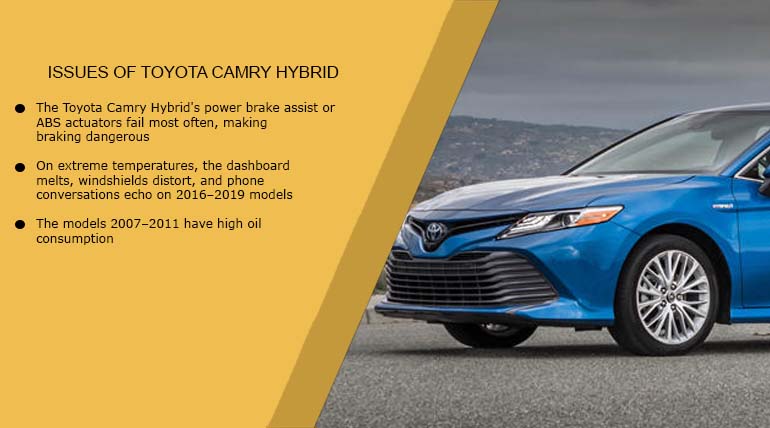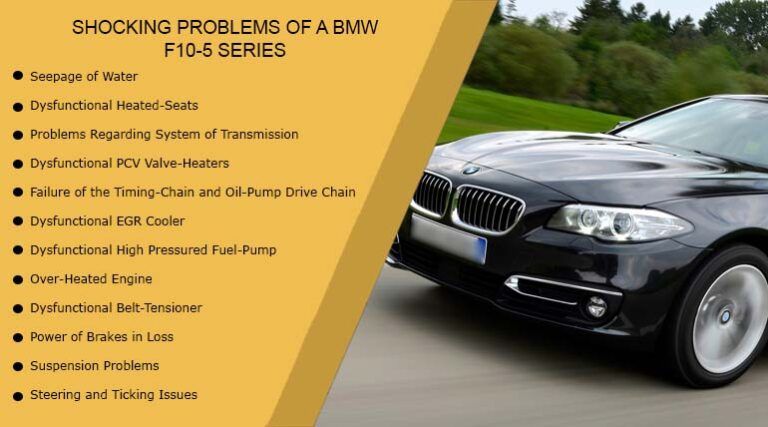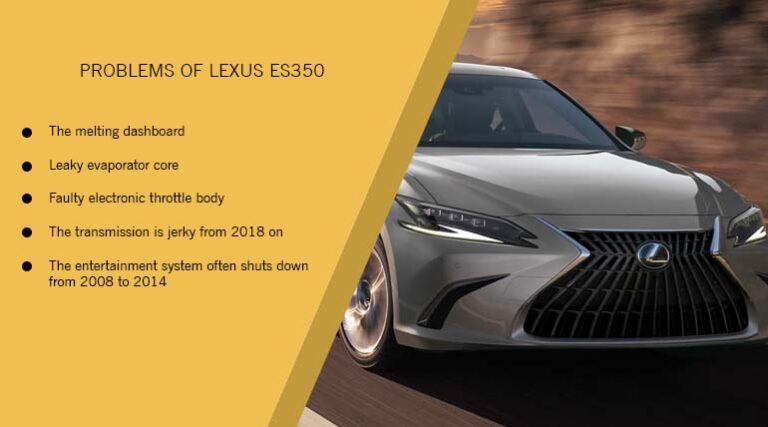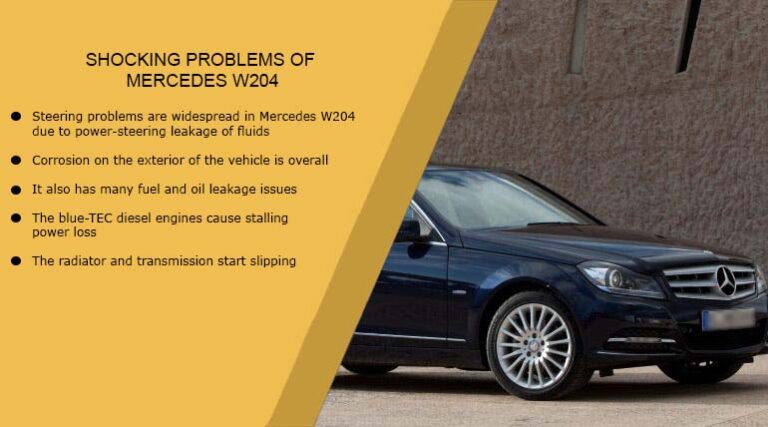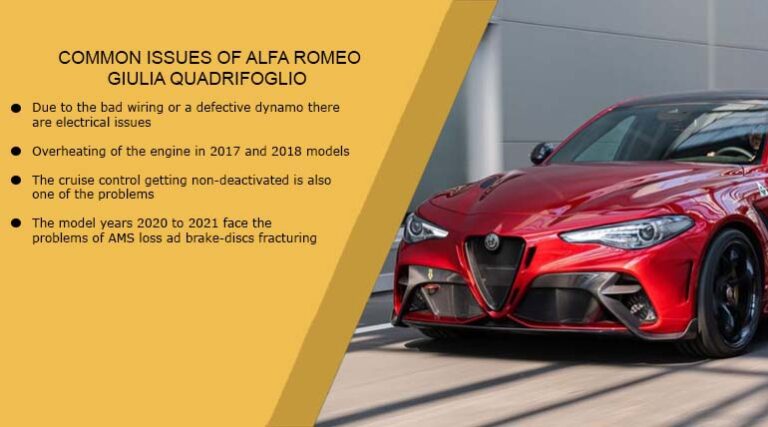12 Most Common Issues of Toyota Camry Hybrid You Must Know
The Toyota Camry Hybrid has earned a reputation for its superior economy, dependability, and passenger comfort. It’s an environmentally beneficial alternative for everyday travel since it’s a hybrid car, which means it syndicates a gasoline-engine with an electric-motor. While Toyota Camry Hybrids have a reputation for dependability, they are not immune to mechanical problems. In this piece, we’ll take a look at 12 Most Common issues of Toyota Camry Hybrid. Moreover, we’ll provide advice on how to fix them.
An Overview
To summarize, the failure of the power brake assist or the ABS actuators is the most prevalent fault with the Toyota Camry Hybrid, making braking more difficult or hazardous. Additionally, the dashboard melts in hotter temperatures, the windshields might distort, and there are echo issues with phone conversations with the 2016-2019 versions. Finally, the oil consumption being high on the 2007-2011 models.
12 Most Common Issues of Toyota Camry Hybrid and their Troubleshooting
The Toyota Camry Hybrid is a trustworthy and fuel-efficient car, but it is still susceptible to the wear & tear that comes with even use. Hence, following are the common issues of Toyota Camry Hybrid you must know before investing grand in it. Let’s go further and explore them together.
1. Hybrid Battery Failure:
The expected life of the hybrid battery is one of the chief matters with these cars. The battery’s performance and efficiency may decline over time. Moreover, there may be an issue with the battery if you detect a drop in fuel-efficiency or hybrid-related warning lights. If you need your battery checked or replaced, you should take your Toyota to a licensed mechanic.
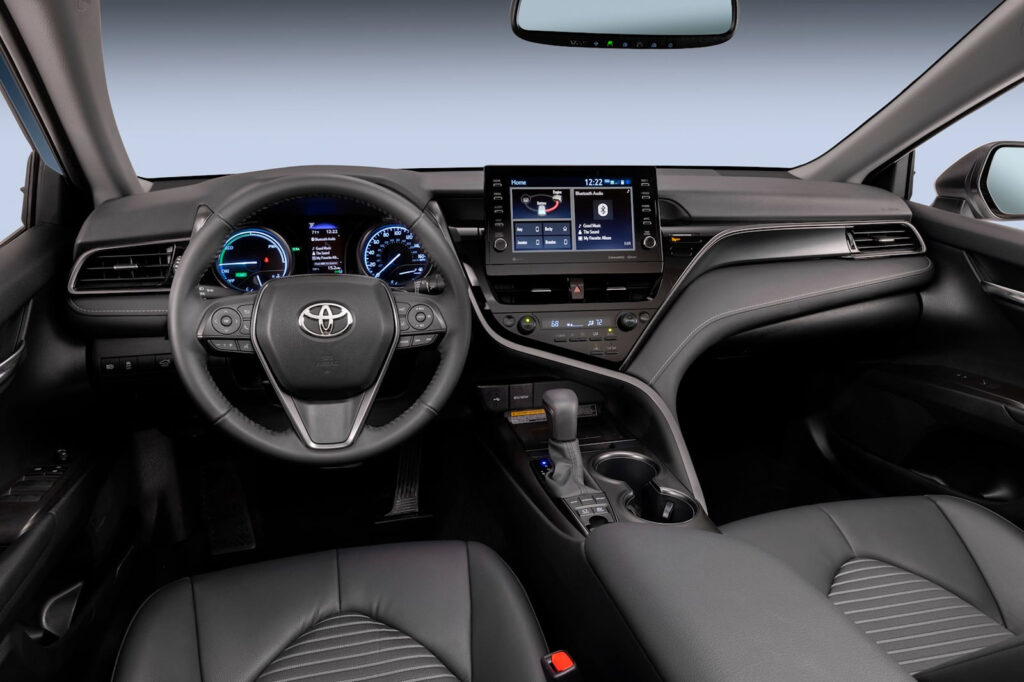
2. Brake Regeneration Problems:
The Camry Hybrid has brakes that may recharge the battery as you drive. Problems with the regenerative braking technology, such as a mushy brake pedal or erratic braking, have been observed by a few owners. There may be anything wrong with the brake actuator or somewhere in the braking system.
3. Inverter Coolant Pump Failure:
Keeping the hybrid system at the right temperature is the job of the inverter coolant pump. Overheating may occur if the pump malfunctions, prompting dashboard warning lights. However, this issue may be avoided by regular coolant checks and rapid repair of any coolant-related problems.
4. Engine Oil Leaks:
The Camry Hybrid’s engine is susceptible to oil leaks, which may leave pools of oil beneath the vehicle or cause the oil level to drop significantly. A common cause is leaky seals or gaskets. Engine damage may be avoided with routine leak checks and rapid repairs.
5. Power Steering Fluid Leaks:
Some Camry Hybrid owners have faced power-steering fluid outflows, leading to difficulty in steering or whining noises when turning the wheel. A leaking power steering system may be caused by damaged hoses or seals and requires immediate attention to prevent steering issues.
6. Transmission Shifting Problems:
Some owners of the Camry Hybrid have complained of gearbox problems, including as jerky shifts or delayed gear engagement. Hence, this issue might be caused by a lack of transmission fluid or a faulty transmission control module (TCM).
Other compact hybrids such as Chevrolet Cruze Hybrid and Infinity Q50 also have transmission issues similar to Toyota Camry Hybrid.
7. Dashboard Display Malfunctions:
Some Camry Hybrids may have problems with the digital instrument cluster display, rendering it unreadable or unresponsive. Moreover, these problems are frequently solvable by updating the infotainment software or conducting a system reset.
8. Air Conditioning Problems:
Occasionally, homeowners have mentioned that their air conditioner isn’t cooling the house properly or is even spewing heated air. Possible reasons comprise seepages in the refrigerant system, broken compressors, or sensors that aren’t working properly. Seeking the opinion of a trained expert may aid in locating and resolving the problem.
9. Noisy Suspension:
Some Camry Hybrid drivers have complained of hearing clunks and rattles coming from the suspension. However, the sound may be silenced by replacing worn suspension components like shocks, struts, or bushings.
10. Exterior Lighting Issues:
A small number of Camry Hybrid drivers have experienced problems with their vehicles outside lights. The best visibility and safety may be achieved by routinely checking the lights and replacing burned-out bulbs or blown fuses.
11. Fuel System Problems:
Problems with the fuel system, such as the engine not starting or not getting very good gas mileage, have been reported by certain Camry Hybrid owners. The gasoline filter, fuel pump, or both might be blocked, or the fuel itself could be polluted. Such issues may be avoided with diligent upkeep and premium gasoline.
12. Windshield Wiper Defects:
It has been reported that the windshield wipers on certain Camry Hybrids are faulty and leave streaks. Additionally, clear vision in inclement weather may be hindered by worn-out wiper blades or a faulty wiper motor, both of which can be avoided with frequent blade replacement.
Toyota Camry Hybrid Worst Years
Upon closer inspection, it seems that the vast majority of Toyota Camry Hybrids are reliable vehicles with a lengthy lifespan. The Toyota Camry, for instance, has a known lifespan of 260,000-290,000 kilometers.
Yes, the hybrid version is not the main focus of that article. However, as you’ve seen, the hybrid’s battery pack is functioning normally; thus, it’s reasonable to infer that the hybrid is likewise capable of these mileages.
But if there’s one thing we’ve learned from our investigation, it’s this:
Avoid the first generation Toyota Camry Hybrids (namely the years 2007-2011). Dashboards melt, oil consumption is high, and ABS actuators fail in certain models.
Toyota Camry Hybrid Best Years
If one wants to purchase a used-Toyota Camry Hybrid that won’t let you down, opt for one made between 2012 and 2015. You may increase it to 2017 if you don’t mind the possibility of echoing while making calls hands-free. Brake actuator failure and echoing plagued 2018-2019 models, thus they aren’t the best available.
Conclusion
To conclude about the issues of the Toyota Camry Hybrid, no doubt it is a trustworthy and fuel-efficient car, but it is still susceptible to the wear & tear coming along with consistent use. An enjoyable and joyful experience in the Camry Hybrid may be ensured for years to come with regular engine maintenance, timely repairs, and rapid attention to any warning indications. Hence, if you want to keep your Toyota running at peak performance, you should constantly get it checked by a certified mechanic.
